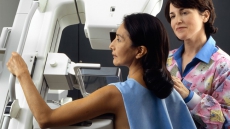Lifestyle factors, not Viagra, put users of erectile dysfunction drugs at higher risk of melanoma, a deadly form of skin cancer, says a study.
The study that involved analysis of medical records of over 20,235 men concluded that use of erectile dysfunction drugs does not cause melanoma and that the likely source of the observed uptick in malignant melanoma risk among users of erectile dysfunction drugs is socioeconomic and lifestyle based.
"When used appropriately, such medications are very effective and improve the quality of life of many men, so men should know it is doubtful that taking these medications puts them at greater risk of getting skin cancer," said lead study author Stacy Loeb from New York University Langone Medical Center.
"What our study results show is that groups of men who are more likely to get malignant melanoma include those with higher disposable incomes and education -- men who likely can also afford more vacations in the sun -- and who also have the means to buy erectile dysfunction medications, which are very expensive."
Among more than 20,000 men whose records were studied, 4,065 were found to have malignant melanoma between 2006 and 2012.
Among these men were 2,148 who had used any of the three main drugs for erectile dysfunction -- Viagra (also known as sildenafil), Levitra (vardenafil) and Cialis (tadalafil) -- and among them, some 435 had the skin cancer.
Researchers who led the analysis said while there was a greater statistical risk of developing malignant melanoma among erectile dysfunction drug users (an overall increased risk of 21 percent for having filled a single prescription), a closer look at the numbers revealed no increased risk among those men with the most prescriptions.
"While medications for erectile dysfunction come with serious risk of a drop in blood pressure if taken together with other medicines called nitrates, overall they are safe medications and our results suggest that physicians should not be concerned that the drugs cause melanoma," Loeb said.
The results appeared online in the Journal of the American Medical Association.





